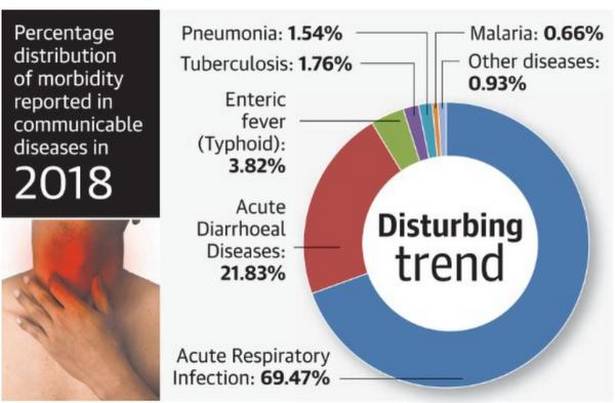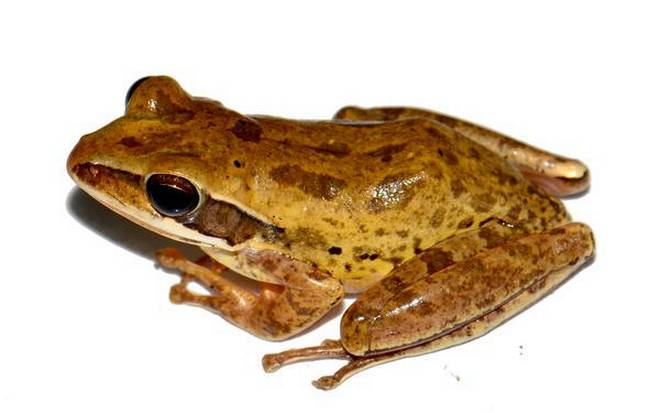Governance
Gujarat Anti-Terror Bill
Why in News
The President of India gave assent to the Gujarat Control of Terrorism and Organised Crime (GCTOC) Bill, an anti-terror legislation passed by Gujarat in 2015.
Key Provisions
- It defines a ‘terrorist act’, as an act committed with the intention to disturb law and order or threaten the unity, integrity, and security of the state.
- It also mentions organized crime which are criminal activities run for a substantial profit.
- It includes economic offences namely, Ponzi schemes, multi-level marketing schemes, and organized betting.
- It also includes extortion, land grabbing, contract killings, cybercrimes, and human trafficking.
- The investigating agencies can intercept telephonic conversations and submit them as legitimate evidence in court.
- However, the approval for interceptions of telephonic conversations will be cleared at the level of additional chief secretary.
- The confessions made before a police officer will also be considered as evidence.
- However, the confessions made to an officer of the rank of Superintendent of Police (SP) or above would only be admissible in court.
- It provides 180 days’ time for authorities to file a charge sheet instead of the usual 90 days and also proposes stricter conditions for bail.
- It also provides for the creation of a special court as well as the appointment of special public prosecutors.
Controversial Provisions of GCTOC Bill
- The consideration of intercepted telephonic conversations as legitimate evidence is violative of the Right to Privacy (Article 21).
- Also, the consideration of confession made before police officers as evidence is violative of the fundamental rights of an accused (Article 20).
- Article 20(3) of the constitution says that no person accused of any offence shall be compelled to be a witness against himself.
- The extension of time for filing the charge sheet has been increased up to 180 days from for 90 days.
- The clause keeps a person under detention for a longer period of time.
- These provisions are on the lines of the Centre’s Prevention of Terrorist Activities Act (POTA).
- But arbitrary use of such provisions led to the repulsion of POTA in 2004.
Advantages of the Bill
- Gujarat shares a border with Pakistan, and hence, such legislation is required for better safety and security, especially in a coastal and border state.
- It will give sufficient power to police officials and enhance the security of the state.
- It will also help control cybercrime and narco-terrorism fuelled by terrorist outfits from across the border.
Biodiversity & Environment
Fall in India’s CO2 Emissions
Why in News
According to an analysis published in ‘Carbon Brief’, Carbon dioxide (CO2) emissions in India are set to grow at their slowest in the year 2019, which is a rise of only 2% from the year 2018. The 2% rate is a lower rate than any annual increase since 2001.
- As per the International Energy Emissions Agency, 2018 report:
- India’s per capita emissions were about 40% of the global average.
- The emissions contributed 7% to the global carbon dioxide burden.
- U.S., one of the largest emitters, contributed 14%.
- Carbon Brief is a site that tracks emission and carbon dioxide trends.
Reasons
- Economic slowdown in the country.
- Oil demand growth slowed to 2.6% in the first eight months of 2019, compared with 4.6% in 2018, and 5% on average over the past 10 years.
- Use of petcoke (an oil refining byproduct) continues to fall after an import ban was put in place.
- India banned the import of petcoke for use as a fuel in 2018.
- Thus, import of petcoke is allowed for only cement, lime kiln, calcium carbide and gasification industries, when used as the feedstock or in the manufacturing process.
- Demand for naphtha – a lighter fraction of refined crude oil used in the chemical industry – fell too, likely due to slower growth in petrochemicals.
- Slowdown in the expansion of coal-fired electricity generation and surge in renewable power generation.
- Due to rapid growth in renewable generation, the share of coal in meeting the electricity demand has decreased.
- In the first six months of 2019, wind, solar and hydro met 70% of the increase in electricity demand.
Benefits
- This fall will help India in achieving its renewable energy targets.
- The targets of India’s Nationally Determined Contributions (NDCs) include:
- To reduce the emissions intensity of its GDP by 33 to 35% by 2030 from 2005 levels.
- To achieve about 40% cumulative electric power installed capacity from non-fossil fuel based energy resources by 2030.
- The targets of India’s Nationally Determined Contributions (NDCs) include:
- Slower growth in coal-based power generation will benefit the country’s air quality efforts, as essentially all coal-fired power plants in India lack pollution controls which are necessary in countries like China and the European Union.
Governance
Acute Respiratory Infections
Why in News
Recently, the data released by the National Health Profile (NHP)-2019 showed a higher number of people affected by Acute Respiratory Infections (ARI) in the country.
Key Points
- According to the World Health Organisation (WHO), ARI is a serious ailment that prevents normal breathing function.
- ARI accounted for 69.47% of morbidity in 2018.
- It was the highest in the communicable disease category leading to 27.21% mortality.
- Andhra Pradesh, Gujarat, Karnataka, Kerala, Tamil Nadu, Uttar Pradesh and West Bengal reported a large number of patients and fatalities as per NHP-2019.
What Happens When You Breathe Polluted Air?
- When you breathe in polluted air, particles and pollutants penetrate and inflame the linings of your bronchial tubes and lungs.
- This leads to respiratory illness such as chronic bronchitis, emphysema, heart disease, asthma, wheezing, coughing and difficulty in breathing.
Impact on Health
- Children: Indians face the double burden of heavy air pollution in addition to the high rate of ARI which hits children the hardest.
- The mortality rate among children due to ARI is 2.6 million annually across the world.
- Pregnant Women: Prenatal exposure to pollutants increases the risk of pre-term delivery and low birth weight that can lead to developmental disabilities.
- Senior Citizens: The progressive declining of body functioning due to old age makes air pollution more fatal for them.
- They face frequent breathing problems which may lead to respiratory illness such as chronic bronchitis, emphysema, heart disease, asthma, wheezing, coughing, etc.
The existing disease burden with increasing air pollution is deteriorating the human capital of the country and therefore needs to be checked regularly.
Important Facts For Prelims
Pakistan Suspends Exchange of Postal Mails
In a unilateral decision, Pakistan has stopped the exchange of postal mails with India without any prior notice.
- Under Universal Postal Union (UPU) rules, when a country decides to suspend postal exchange with a country, it must notify the operator of the other country and, if possible, the duration for which services are being stopped.
- The UPU’s International Bureau too has to be notified.
- Apart from UPU rules, three other agreements cover postal exchange between India and Pakistan:
- Exchange of Value Payable Article, 1948
- Exchange of Postal Article, 1974
- International Speed Post Agreement, 1987
Universal Postal Union (UPU)
- Universal Postal Union is the specialized agency of the United Nations.
- It was established in 1874 and is the second oldest international organization worldwide after International Telecommunication Union (1865).
- Its headquarter is located in Bern, Switzerland, and consists of 192 member countries.
- The UPU consists of 4 bodies:
- The Congress
- The Council of Administration
- The Postal Operations Council
- The International Bureau
- It frames rules for international mail exchange and fixes rates for international postal services.
- It performs advisory, mediating and liaison role, and provides technical assistance where needed.
- India joined the UPU in 1876.
Important Facts For Prelims
New Species of Tree Frog
A new species of tree frog, discovered in West Bengal, has been named Brown Blotched Bengal Tree Frog (Polypedates bengalensis) due to a series of six to nine dark brown blotches present on its body.
- It is a mid-sized tree frog and is the 26th species under the genus Polypedates.
- Polypedates is a genus of tree frog found throughout South and Southeast Asia.
Important Facts For Prelims
Tort Law and Polluter Pays Principle
Why in News
The Supreme Court has sought an explanation from the governments of Haryana, Punjab and Uttar Pradesh on why they should not be punished under tort law and be made to pay a hefty penalty for stubble fires seen so far this season. The court has said that the Polluter Pays Principle applies to all states and local bodies.
Tort Law
- Tort law is the body of laws that enables people to seek compensation for wrongs committed against them. When someone’s actions cause some type of harm to another, whether it be physical harm to another person, or harm to someone’s property or reputation, harmed or injured person or entity may seek damages through the court.
- Generally the compensations are monetary awards ordered by the court to be paid to an injured party, by the party at fault.
- The types of damages that may be awarded by the court for civil wrongs, called “tortious conduct” of an individual or entity include:
- Reimbursement for property loss or property damage
- Medical expenses
- Pain and suffering
- Loss of earning capacity
- Punitive damages
Polluter Pays Principle
- It is the commonly accepted practice that those who produce pollution should bear the costs of managing it to prevent damage to human health or the environment. For example, a factory that produces a potentially poisonous substance as a byproduct of its activities is usually held responsible for its safe disposal.
- It is part of the 1992 Rio Declaration which gives broader principles to guide sustainable development worldwide.
Important Facts For Prelims
Semi - Dirac Metals
Why in News
Researchers from the Indian Institute of Technology - Bombay have discovered special properties in a class of materials called “semi-dirac metals”.
How Semi - Dirac Metals differ from other metals?
- In general, metals are good conductors of electricity.
- A key aspect that decides the quality of conduction is the way energy depends on the momentum of electrons.
- Dirac metals differ from normal metals in that the energy depends linearly on the momentum of electrons. This difference is also responsible for their unique properties.
- Semi-Dirac metals behave like Dirac metals in one direction and like normal metals in the perpendicular directions (since their microscopic structure is different along the two directions).
- Examples of semi-dirac metals are systems such as TiO2/V2O3 nanostructures (Oxides of Titanium and Vanadium).
Properties Discovered
- The direction-dependence of microscopic properties gives Semi - Dirac material special optical properties.
- Semi-Dirac materials have very high optical conductivity of electromagnetic waves (light waves). These waves are of a specific frequency and a specific polarisation.
- Optical conductivity is a measure of the opacity offered by the material to the passage of light through it.
- Semi - Dirac materials would be transparent to light of a given frequency and polarisation when it is incident along a particular direction.
- These materials would be opaque to the same light when it falls on it from a different direction.
- There are many known applications for transparent conducting films – the common example being touch screens used in mobiles.
- The material possesses interesting thermoelectric properties.
- Thermoelectricity is a clean energy technology that uses waste heat to produce electricity typically in low power applications.
- This technology is used in efficient cars, where it is used to keep the lights on and to warm seats.




